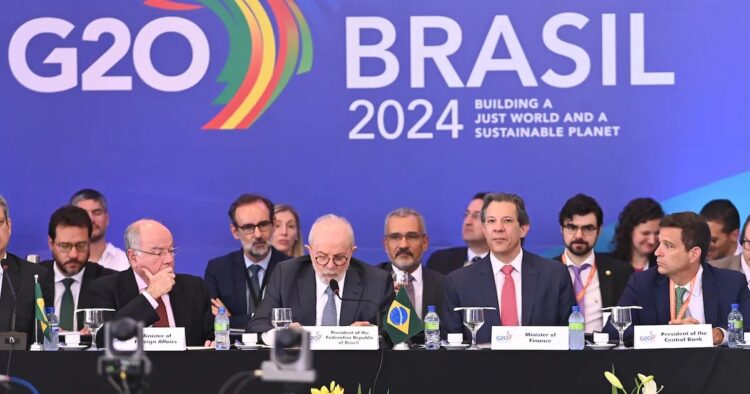In a recent interview with the G20 Brazil website, Brazil’s Minister of Women, Cida Goncalves, emphasized the core priorities of Brazil’s G20 presidency, highlighting the commitment to achieving equal pay for women, confronting discrimination against women, and addressing climate justice. Goncalves, a specialist in gender issues with a history of activism, underscored the importance of these issues on a global scale.
Under Bharat’s presidency last year, the G20 Working Group on Empowerment of Women was established in 2023, providing a platform to address gender-related challenges. Goncalves sees the fight for equality as a top priority, citing Brazil’s Equal Pay Law enacted in 2023 as a significant milestone. She emphasized that equal pay is not just a women’s issue but a societal and economic one, as reflected in the World Bank’s Women, Business and the Law 2023 report.
The report indicates that eliminating gender inequality in the labor market could boost GDP per capita by almost 20% globally. It also underscores that nations with laws ensuring equal rights tend to have developed economies and a higher quality of life.
Goncalves outlined three main priorities within the Working Group during G20 discussions: equal pay for women, confronting misogyny and discrimination, and addressing climate justice. She expressed the importance of building consensus among G20 countries, acknowledging differences and controversies but aiming for specific recommendations by November.
The Brazilian Minister highlighted the interconnectedness of gender issues with climate justice, emphasizing the vulnerability of women to natural disasters and their crucial role in environmental preservation. Brazil is approaching climate justice from economic, developmental, and sustainability perspectives, acknowledging the gender-specific aspects of sustainability.
Goncalves praised Brazil’s Equal Pay Law as a “turning point” and a “civilizational milestone” that transcends being solely a women’s issue. She acknowledged the challenge of implementing such a law in a country of Brazil’s size but expressed optimism about its positive impact on the economy, companies, and professionals.
The Minister labeled it “unacceptable” that women still earn less than men for the same work in many countries. She stressed the importance of engaging in discussions with companies, society, and men to address this issue, encouraging a shift towards a more humane and fair society.
As Brazil takes on the G20 presidency, the focus on these critical issues reflects a commitment to fostering positive change on a global scale, promoting equality, and addressing pressing challenges related to women’s rights and climate justice.

















Comments